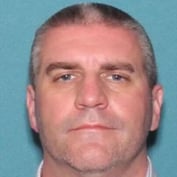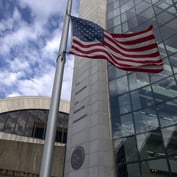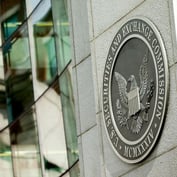The jury verdict Thursday afternoon that found former Goldman Sachs’ trader Fabrice Tourre liable for fraud for his role in a failed $1 billion subprime mortgage investment is seen as a critical victory for the Securities and Exchange Commission, and the details of the case should be analyzed as the agency writes its fiduciary rule, industry officials say.
“This was a particularly high-profile case for the SEC, so getting a win was critical for them,” Steve Crimmins, a partner with K&L Gates in Washington, who served for eight years as the SEC’s Deputy Chief Litigation Counsel, told ThinkAdvisor on Monday.
See also: Are we becoming ethical in spite of ourselves?
The case against Tourre stems from the 2010 case in which the SEC charged Goldman Sachs with defrauding investors in a 2007 deal known as Abacus, a collaterlized debt obligation. The SEC said that Goldman misstated and omitted key facts about the CDO tied to subprime mortgages as the U.S. housing market was beginning to falter. Goldman agreed to pay a record $550 million settlement and reform its business practices.
On Thursday, a jury decided that Tourre, a former Goldman vice president, should be held accountable for his role in hiding the role played by John Paulson’s hedge fund, Paulson & Co., in the Abacus deal. The SEC claimed Tourre hid that Paulson helped choose the portfolio of subprime mortgage-backed securities underlying Abacus while betting it would fail.
At a time when the agency has been criticized for its poor record in taking cases to trial, Crimmins says that the verdict “demonstrates the SEC Trial Unit’s ability to present very complex cases involving technical terms and concepts to a jury of laypeople.” The Tourre verdict, he says, “will be important to the SEC as it resolves its remaining financial crisis cases and takes on new non-vanilla matters.”
Indeed, the SEC released a statement after the verdict was given stating that the agency “will continue to vigorously seek to hold accountable, and bring to trial when necessary, those who commit fraud on Wall Street.” As shown by this verdict, the SEC said, “we proved that Mr. Tourre, as a Goldman Sachs vice president, put together a complicated financial product that was secretly designed to maximize the likelihood that it would fail, and marketed and sold it to investors without appropriate disclosure.”
U.S. District Judge Katherine Forrest said after the verdict that she would consider possible penalties, disgorgement and other measures Tourre could face as a result of being found liable, according to Bloomberg.
“We should talk about the next phase of this matter, which requires some scheduling,” she said, telling lawyers that she expects to see court papers filed by Aug. 23, Bloomberg reported.








 August 06, 2013 at 07:08 AM
August 06, 2013 at 07:08 AM











 Knut Rostad (left), president of the Institute for the Fiduciary Standard who has blogged for
Knut Rostad (left), president of the Institute for the Fiduciary Standard who has blogged for